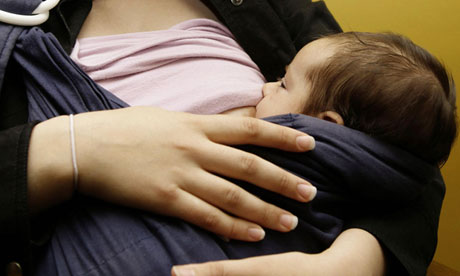
Breastfeeding is no longer a public health issue. Under the previous government, there was a 10-year infant feeding strategy, but there is no such foundation and framework in place now.
In England, there is a shortage of 5,000 midwives and a dearth of midwives promoting breastfeeding in the community, as postnatal care is being cut. Women need more face-to-face time with midwives after giving birth. Also, infant feeding co-ordinator posts have been cut. There is now a lack of health promotion about breastfeeding and there is no longer a national breastfeeding co-ordinator or a national strategy, though Wales and Scotland have strategies.
Ultimately, the decision by parents to breastfeed is influenced by a variety of factors, which can be linked to the provision of local health services. Areas with high breastfeeding initiation and continuation rates tend to have strong Sure Start Centres, breastfeeding drop-in clinics, good peer support and community midwifery networks, where the midwife is the first point of contact for the mother and where there are good role models.
Research has shown that other factors, such as the availability and expert knowledge from midwives, especially community midwives and health visitors, who play integral roles in helping and guiding women about breastfeeding, are important.
We need to remember that there is a new generation of mothers giving birth each year, all of whom need information, advice and encouragement about breastfeeding.
Breastfeeding is best, but today's statistics show that there are significant regional variations in the numbers of new mothers who choose to breastfeed.
These health inequalities around the country are stark, but the NHS, clinical commissioning groups and local authorities should be using this data to target local health breastfeeding and community midwifery cold spots. We can see at a glance what needs fixing locally, especially in deprived areas where community children's centres that promote breastfeeding and educate women and families are facing cuts. Breastfeeding is natural but it has to be learned and for some women this is not easy. Continuity of care and having the same midwife builds trust and mutual respect, but spending time and developing a relationship is a rare thing in the NHS these days.

